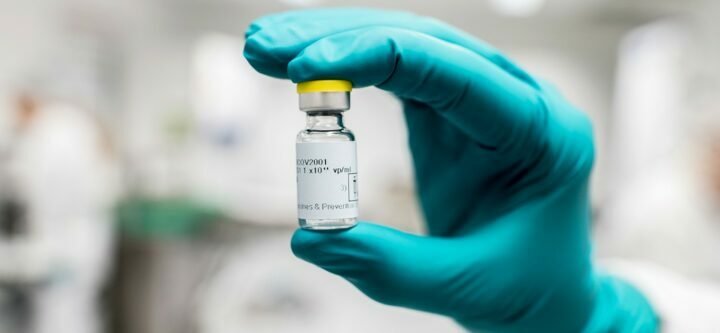According to the Associated Press on February 5, Johnson & Johnson officially requested the U.S. Food and Drug Administration (FDA) the day before to approve the emergency use of its coronavirus vaccine.
Johnson & Johnson’s coronavirus vaccine, like the AstraZeneca-Oxford vaccine in the United Kingdom and the Connoxi vaccine in China, is a denovirus vector vaccine.
In the third phase of clinical trials, the vaccine is 66% effective in protecting moderate and severe COVID-19 symptoms.
The biggest feature of this vaccine is that it only needs one dose, and all the coronavirus vaccines now in use require two doses.
Unlike the Pfizer-Beneco and Modena vaccines, Johnson & Johnson vaccine can be kept for three months at conventional refrigeration temperature (2-8 °C) and the storage and transportation threshold is much lower.
Johnson & Johnson announced the results of its third phase of the trial aimed at preventing moderate and severe COVID-19 symptoms on January 29.
The trial had 43,783 subjects from the United States, Latin America and South Africa, of whom 468 were COVID-19 cases.
The results show that after 28 days of vaccination, the overall protection effectiveness of Johnson & Johnson vaccine against moderate and severe COVID-19 symptoms was 66%, and the prevention effect could be observed as early as the 14th day after vaccination.
Specifically, the protection efficiency of vaccines is 72% in the United States, 66% in Latin America, and 57% in South Africa, where a large number of viral variants have emerged.
The preventive effect on severe diseases has become the main selling point of the vaccine. Johnson & Johnson said that the vaccine has an 85% critical protective effect after 28 days of vaccination in all adults aged 18 and above, which can comprehensively prevent hospitalization and death caused by COVID-19.
There is a clear preventive effect on the symptoms of COVID-19 that require medical intervention (hospital, ICU, ECMO). After 28 days of vaccination, there were no relevant reported cases among the vaccine subjects.
However, in order to obtain FDA permission, Johnson & Johnson still needs to provide all the data behind the trial. The FDA expects to hold an advisory meeting on February 26, which, if finally passed, will be the third approved coronavirus vaccine in the United States.
Johnson & Johnson said that the company expects to provide 100 million doses of vaccine to the United States by the end of June and 1 billion doses of vaccines to the world by the end of the year.
In addition, Johnson & Johnson is also working on its two-done vaccine, but it will have to wait several months for the results.
The Associated Press believes that although Johnson & Johnson’s vaccine is not as protective as the previously approved Pfizer-Benteco and Modena (both 95%), considering the global pandemic and the shortage of vaccines, an easy-to-operate (single dose injection) and easy-to-store and transport vaccine may be an acceptable and compromise solution. In order to make more people vaccinated as soon as possible.
Peter Marks, director of FDAA’s Biological Products Evaluation and Research Center, said that the prevention and control of the pandemic is imminent. We cannot ignore any tools in the toolbox.
We must do our best to ensure that the best people for each vaccine can be found. He also believes that Johnson & Johnson vaccine should not be compared with the first two vaccines until there is sufficient evidence.
Due to the urgency of the pandemic and the protection that Johnson & Johnson vaccine can still provide, the scientific community still has a welcome attitude towards Johnson & Johnson vaccine.
Jesse Goodman, a former Peter Marx professor at Georgetown University, believes that the experiments of Pfizer-Benetech and Modena vaccines were completed before the number of cases has soared in recent months and new mutants have been discovered. If their experiments are put today, but The same result can and cannot be achieved.
In Goodman’s view, the protection capacity of Johnson & Johnson vaccine is enough to help prevent and control the pandemic, and the vaccine must be as good as possible.
Mathai Mammen, research director of Johnson & Johnson’s pharmaceuticals, emphasized the single dose advantage of his vaccine, saying that “a single dose of vaccine is worth seeing.”
Judging from the current situation of vaccination in the United States, a single dose of injection does have a lot of advantages.
According to the Associated Press, 23 million Americans have completed their first doses of Pfizer-Beneco and Modena vaccines since the vaccination began, but fewer than 5 million people have completed the second dose, and there are still billions of vaccine gaps to face to overcome the pandemic worldwide.
According to the Associated Press, there is another vaccine in the United States that is under final testing.
Novavax reported this week that their vaccine in clinical trials in the United Kingdom showed 89% effectiveness and also worked on variants in the UK.
At present, the company continues to recruit volunteers to participate in the experiment in the United States and Mexico.
The Canadian government has reached an agreement with them to produce the company’s vaccine in Montreal.



